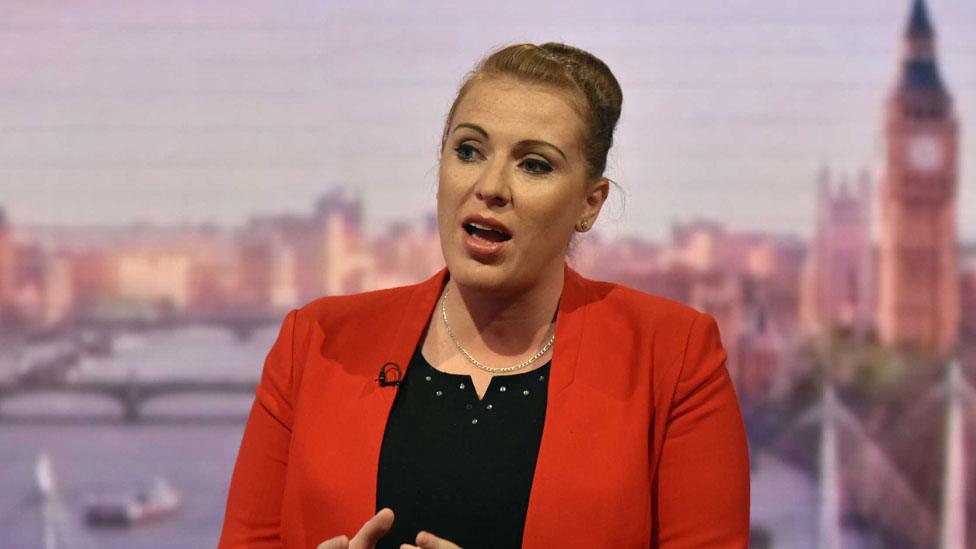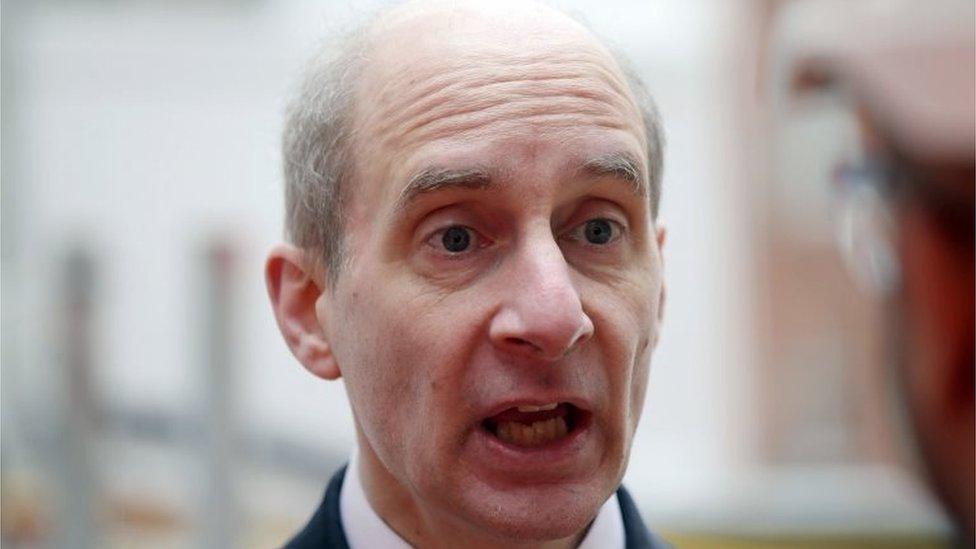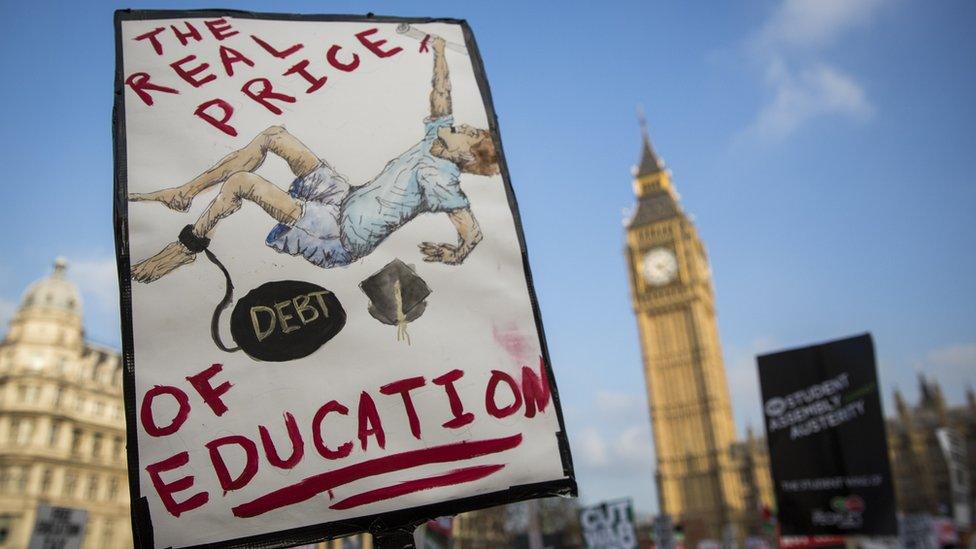Labour 'aim' to wipe £100bn student debt - Angela Rayner
- Published

Labour's "ambition" is to write off all student debt, which would cost £100bn, shadow education secretary Angela Rayner has said.
The Labour MP said it was a "huge amount" and the party would not commit to doing it "unless we can afford to".
The Conservatives said it was a "shambolic" proposal, which Labour had no idea how to fund and would lead to higher taxes.
Labour has pledged to scrap university tuition fees if it wins power.
But leader Jeremy Corbyn went further in an interview with the NME, external during the election campaign, suggesting existing debts could be wiped.
He told the music magazine: "There is a block of those that currently have a massive debt, and I'm looking at ways that we could reduce that, ameliorate that, lengthen the period of paying it off, or some other means of reducing that debt burden.
"I don't see why those that had the historical misfortune to be at university during the £9,000 period should be burdened excessively compared to those that went before or those that come after. I will deal with it."
'Frankenstein's monster'
The Greens were the only party at the general election to include a commitment to wipe all student debt in their manifesto.
Quizzed by the BBC's Andrew Marr on how much it would cost, Ms Rayner said: "It is a huge amount, it is £100bn, which they estimate at the moment, which will increase.
"It's a huge amount of money but we also know a third of that is never repaid."

Lord Adonis has called for tuition fees to be scrapped
Ms Rayner said Mr Corbyn had said it was an "ambition", but she added "we will not announce that we're doing it unless we can afford to do that".
She added: "I like a challenge, Andrew, but we've got to start dealing with this debt crisis that we're foisting on our young people. It's not acceptable.
"They are leaving university with £57,000 worth of debt, it's completely unsustainable and we've got to start tackling that."
Last month, the Student Loan Company said that outstanding debt on student loans had increased by 16.6% to £100.5bn at the end of March.
Only about a third of the students who have taken out £9,000-a-year loans are expected to pay them back fully, meaning the government will have to pick up part of the bill.
Lord Adonis, who came up with the student fees policy as Tony Blair's policy director, has called for them to be scrapped or vastly reduced, saying in an article for the Guardian , externalthat he had never meant to create a "Frankenstein's monster of £50,000-plus debts for graduates on modest salaries".
He blamed "greedy" university vice-chancellors, who successfully lobbied the coalition government to increase the £3,000 cap on fees to £9,000.
'Taxes on families'
Conservative First Secretary of State Damian Green, who is effectively Theresa May's second-in-command, has called for a "national conversation" on tuition fees, to consider whether they should be paid out of taxes.
Angela Rayner has previously called on the government to reverse the abolition of student maintenance grants to help the most disadvantaged students.
She also wants to reduce the interest rate that students have to pay on their loans, which has gone up to 6.1%.
Asked by Andrew Marr if fewer working class youngsters were getting into university education as a result of tuition fees, she said: "I don't believe that that's the case actually, but I do believe that many working class and part-time and older mature students are actually leaving university."
Conservative MP Luke Hall said Ms Rayner's comments contradicted Mr Corbyn's claim that fewer people from disadvantaged backgrounds were going to university.
He said: "The truth is that the number of people going to university from disadvantaged backgrounds has never been higher.
"Now Labour are making shambolic promises to spend £100bn extra, without any idea of how to fund it, that could only be paid for through higher taxes on families.
"This government is committed to making sure that everybody has the chance to go to university no matter their background, so that we can build a country that works for everyone."
- Published8 July 2017
- Published22 May 2017
